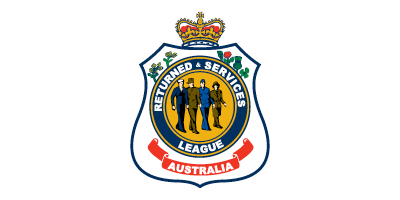August 1918
![Marquees set up for afternoon tea. [Weekly Courier 8th August 1918 p22]](https://images.squarespace-cdn.com/content/v1/5b6b8f2d3c3a53a57ae584be/1537783262049-1XT9L9YJBM0U9F6W7OHW/1stPlant_AteaMarquees.jpg)
![The band from Claremont Army Camp. [Tasmanian Mail 8th August 1918 p17]](https://images.squarespace-cdn.com/content/v1/5b6b8f2d3c3a53a57ae584be/1537783262597-QIDJSVDJBJ4AK4EM3IFZ/1stPlant_ClaremontBand.jpg)
![Shot of the Crowd listening to speeches. [Tasmanian Mail 8th August 1918 p18]](https://images.squarespace-cdn.com/content/v1/5b6b8f2d3c3a53a57ae584be/1537783262853-EOL0WM62ENGPU3EGPOL1/1stPlant_Crowd.jpg)
![Crowd assembling. [Tasmanian Mail 8th August 1918 p17]](https://images.squarespace-cdn.com/content/v1/5b6b8f2d3c3a53a57ae584be/1537783263351-NIEXM51K0IKT4UKKCCXF/1stPlant_Crowd2.jpg)
![Crowd gathered near the stand. [Tasmanian Mail 8th August 1918 p17]](https://images.squarespace-cdn.com/content/v1/5b6b8f2d3c3a53a57ae584be/1537783263858-B51OT6Z5J8TF22B9GVBN/1stPlant_Crowd3.jpg)
![Crowd shot from the stand. [Tasmanian Mail 8th August 1918 p18]](https://images.squarespace-cdn.com/content/v1/5b6b8f2d3c3a53a57ae584be/1537783264151-VD1GXJZ0181KEOM75RMN/1stPlant_Crowd4.jpg)
![Crowd and official cars on Davies Avenue. [Weekly Courier 8th August 1918 p22]](https://images.squarespace-cdn.com/content/v1/5b6b8f2d3c3a53a57ae584be/1537783264761-QUFGBKZLKL0W3YJ8NH6I/1stPlant_Crowd5.jpg)
![Crowd and official cars on Davies Avenue. [Weekly Courier 8th August 1918 p22]](https://images.squarespace-cdn.com/content/v1/5b6b8f2d3c3a53a57ae584be/1537783265001-B4BTHG5XXAUJ2WV9LKSR/1stPlant_Crowd6.jpg)
![Men returned from C Squadron 3rd Light Horse. [Weekly Courier 8th August 1918 p22]](https://images.squarespace-cdn.com/content/v1/5b6b8f2d3c3a53a57ae584be/1537783265334-SZ28YLDSQ9RGC1HD6B5Q/1stPlant_Csq3rdLH.jpg)
![Group of dignitaries including Col Young, Major Lewis and Anglican Archbishop. [Tasmanian Mail 8th August 1918 p18]](https://images.squarespace-cdn.com/content/v1/5b6b8f2d3c3a53a57ae584be/1537783266838-20IW905PZYGMNF58Q8H7/1stPlant_Dignitaries.jpg)
![Part of the Guard of Honour. [Tasmanian Mail 8th August 1918 p17]](https://images.squarespace-cdn.com/content/v1/5b6b8f2d3c3a53a57ae584be/1537783267139-N4N8GTTFLRD42F0G1IIT/1stPlant_GuardofHonour.jpg)
![Guard of Honour. [Tasmanian Mail 8th August 1918 p17]](https://images.squarespace-cdn.com/content/v1/5b6b8f2d3c3a53a57ae584be/1537783269631-VDFIP6CBMFL2NTOFN9G9/1stPlant_GuardofHonour2.jpg)
![Guard of Honour. [Weekly Courier 8th August 1918 p22]](https://images.squarespace-cdn.com/content/v1/5b6b8f2d3c3a53a57ae584be/1537783269871-BEVOJINTQR2ZH02XQ59T/1stPlant_GuardofHonour3.jpg)
![Sir Herbert Nicholls CJ giving his speech. [Weekly Courier 8th August 1918 p22]](https://images.squarespace-cdn.com/content/v1/5b6b8f2d3c3a53a57ae584be/1537783270414-EDR5IVIJMZIINYK1YH6Z/1stPlant_HNSpeech.jpg)
![Sir Herbert Nicholls on the stand. [Tasmanian Mail 8th August 1918 p17]](https://images.squarespace-cdn.com/content/v1/5b6b8f2d3c3a53a57ae584be/1537783270647-6HYU6OF3LX81ITYDYLCB/1stPlant_HNSpeech2.jpg)
![Group of returned soldiers. [Tasmanian Mail 8th August 1918 p18]](https://images.squarespace-cdn.com/content/v1/5b6b8f2d3c3a53a57ae584be/1537783270896-4ZR071AJ5Q27AP0QVJ75/1stPlant_RetSoldiersPl1.jpg)
![Group of returned soldiers. [Tasmanian Mail 8th August 1918 p18]](https://images.squarespace-cdn.com/content/v1/5b6b8f2d3c3a53a57ae584be/1537783272103-GCBQJCI0FX0N74AS9HUF/1stPlant_RetSoldiersPl2.jpg)
![Soldiers assembling at Anglesea Barracks. [Tasmanian Mail 8th August 1918 p17]](https://images.squarespace-cdn.com/content/v1/5b6b8f2d3c3a53a57ae584be/1537783272356-BEDXV4PKFOL5WDBZ9F0A/1stPlant_SoldiersBarracks1.jpg)
![Soldiers parading before the march. [Tasmanian Mail 8th August 1918 p17]](https://images.squarespace-cdn.com/content/v1/5b6b8f2d3c3a53a57ae584be/1537783272653-DL1U9L6CRO04DX7RGY52/1stPlant_Soldiersparade.jpg)
![Family gathered at the tree for Spr Capstick. [Tasmanian Mail 8th August 1918 p18]](https://images.squarespace-cdn.com/content/v1/5b6b8f2d3c3a53a57ae584be/1537783274525-R3NPZAUK4EOU7DXLNNUM/Capsticktree.jpg)
![Family gathered at the tree for Spr Cleary. [Weekly Courier 8th August 1918 p23]](https://images.squarespace-cdn.com/content/v1/5b6b8f2d3c3a53a57ae584be/1537783275596-ULHRNZCNZWEXT7KLUIQD/Clearytree.jpg)
![Tree planted for Pte Gibson. [Weekly Courier 8th August 1918 p23]](https://images.squarespace-cdn.com/content/v1/5b6b8f2d3c3a53a57ae584be/1537783276206-WNYX0S1EXEL7ZLH1E497/Gibsontree.jpg)
![Family gathered at the tree for Lt Hare. [Weekly Courier 8th August 1918]](https://images.squarespace-cdn.com/content/v1/5b6b8f2d3c3a53a57ae584be/1537783279694-NVDKSJ5ZXA89D5L9XBCF/Haretree.jpg)
![Family gathered at the tree for Dvr Lighten. [Tasmanian Mail 8th August 1918 p18]](https://images.squarespace-cdn.com/content/v1/5b6b8f2d3c3a53a57ae584be/1537783280895-VBPWZWWEI62701RCAY4S/Lightentree.jpg)
![Unknown mourner at tree. [Tasmanian Mail 8th August 1918 p18]](https://images.squarespace-cdn.com/content/v1/5b6b8f2d3c3a53a57ae584be/1537783282454-FRM7BU65LLU82MAQMLEX/UnknownMourner1.jpg)
![Unknown group of mourners at tree. [Tasmanian Mail 8th August 1918 p18]](https://images.squarespace-cdn.com/content/v1/5b6b8f2d3c3a53a57ae584be/1537783282928-RKTJG5IWYE1N5XO3PMVQ/UnknownMourner2.jpg)
![Unknown group of mourners at tree. [Tasmanian Mail 15th August 1918 p17]](https://images.squarespace-cdn.com/content/v1/5b6b8f2d3c3a53a57ae584be/1537783283392-YLPNNBS3JG49V0Q493GI/UnknownMourner3.jpg)
![Family gathered at the tree for Pte Williamson. [Tasmanian Mail 8th August 1918 p18]](https://images.squarespace-cdn.com/content/v1/5b6b8f2d3c3a53a57ae584be/1537783283778-M36YOV5ET49OB4DMWXFR/Williamsontree.jpg)
A huge crowd assembled in the Domain to formally inaugurate the Avenue and plant the first trees (330). The event was extensively covered in the Mercury with the Tasmanian Mail and Weekly Courier giving photo coverage. A special program listing all the names (no ranks or units listed) was produced for the occasion, as was a small lapel badge of tin with a beggar's pin. The full description is given below.
The photo gallery includes photographs of family at the trees for Spr Capstick, Spr Cleary, Pte Williamson and the tree planted for Pte Gibson.
If you recognise anyone in any of the photographs, especially the unidentified groups of mourners, please contact us.
The following is an article that appeared in The Mercury Monday August 5, 1918
Hobart's Soldiers' Avenue
Ceremony of the Tree Planting
A Successful Function
Speech by the Chief Justice
There have been many celebrations in Hobart, but none so impressive as that which gathered on the Domain on Saturday for the planting of the Memorial Avenue. All creeds and classes, sharing the same sorrows, and bound together by the same deep-set bonds of love and nationality as weld their heroic sons were represented. Mothers and fathers in mourning for loved ones resting on lonely hillsides at Gallipoli and the rural cemeteries of France had healing wounds reopened. The atmosphere was heavy with
"The grief that knows no tears
When the battle is lost or won."
At every tree there were touching incidents. At one returned men filled the earth in memory of a "digger" who had nobody here to do it for him, no friends but the friends of his dugout and the trenches. At Lieut. Hare's tree, his tiny mite of a nephew, four months old, assisted by his uncle, heaped the earth round it while his soldier uncles and many friends who knew him well in Hobart looked on. Feeble old ladies and gentlemen, hand in hand attended to others, and with the 429 trees planted were the same sorrowful scenes.
Each tree is enclosed in a guard, and bears a board upon which is painted the soldier's battalion colours, the date of his death, and his nameThe planting was completed by 5 o'clock, but along the winding and undulating course of the avenue little knots remained until dusk like groups of pilgrims.
During the afternoon, the Y.M.C.A. entertained the vice-regal party, the distinguished visitors, and the returned soldiers to afternoon tea on two large marquees. Lady Doris Blackwood planted the first tree at the head of the avenue. Each group acted on its own initiative, and there was progressive planting.
Am imposing feature of the occasion was the march of 150 veterans from the Returned Soldiers' Clubrooms in Elizabeth-street to the Domain. They were headed by the squadron of Light Horse under Lieut. E E Jones, who was to have escorted His Excellency. En route, they were cheered by the lines of people making their way towards the Domain. Cadet companies, naval squads, and boy scouts arched in from different points, converging on the dais on the brow of the hill overlooking Government House. Long before the appointed opening time there was a crowd verging on 10,000 surrounding this point and inspecting the pits and trees. The dais was draped with Allied flags, and souvenir hunters were besieged with cameras.
The Mayor (Alderman Shield) introducing Sir Herbert Nicholls, who was to officially open the planting, said the planting of the avenue had been undertaken to perpetuate the memory of Hobart's fallen sons, and to serve as a reminder to the future generations of the noble sacrifice made by their heroic forefathers on the other side of the world. He expressed the earnest hope that the relatives of the men who had made the supreme sacrifice would gain comfort in the reflection that Australia appreciated her fallen sons, who had died the death of heroes, nobly doing their duty.. (Applause.) He dwelt on the absence of the Governor, who was to have performed the opening ceremony, but who was unable to attend owing to an accident that morning.
On the dais were the Misses Newdegate, Lady Doris Blackwood, Sir Herbert Nicholls, Sir Elliot Lewis, Hon. W B Propsting CMG., Captain Evans CMG., the State Commandant (Colonel W J Clark), Colonel Giblin, PMO., Lieut-Col Butler, and Captain Davies.
The Chief Justice (Sir Herbert Nicholls) sympathetically referred to the accident sustained by His Excellency during the morning. He said: "While I do not propose to move a formal motion on the subject, I will ask all who wish to request the Mayor to express the sympathy of the citizens with His Excellency on his accident to hold up their hands." Immediately the whole of the large crowd responded. The Chief Justice continued: This speech is thrust upon me quite unexpectedly, and I am at a loss to find words to express my feelings. If one had the vocabulary of a Shakespeare and the voice of an Erskine, one could not say a thousandth part of what would enter one's mind, nor express the emotion that arises in contemplating the reasons for this gathering. And so, as the trees to be planted gradually grow up, perpetuating the memory of the men who were once like strong young trees, they will remind us of those heroic patriots, whose bones are now lying on foreign shores. (Applause.) We have had such a curious history, that many men must acknowledge having lost sight of the fact that Australia was not exempt, and could not be exempt, from the misfortunes and calamities which from time to time have beset all nations throughout history. Now, at last, owing to the development of a thought among the German people, and the bind and insane self-confidence which made them believe that they could dominate the remainder of the world as slaves are dominated, Australia has had to face the fact- as all nations at some time have to face it-that her liberties, national existence, and everything that she treasures in this free country were in danger, and that she had to fight for them. (Applause.) As to what part those brave men who went from Australia have played, whether in Gallipoli, Suez, Mesopotamia, Belgium, or France, or anywhere else, we can say, with a clear conscience, that the manhood of Australia has provide itself well worthy of this great free land, and their deeds have given it promise, the future, of being a country of brave and free men. (Applause.) In thinking of what our men have done, I am reminded that here in Hobart an immense number of our women have been engaged at comforts work, which, though not dangerous, is extremely toilsome and laborious. Our women have stuck to that work - literally kept their noses on the grindstone- from day to day, and unless America beats us, the Australian troops, as the result, will have been better cared for by their Red Cross than any troops in the field. In losing sight, as we do, of some of the greater things of life, I think we forget the real meaning of the words patriotism and liberty. This can be seen by a contrast of our conception of these words before the war and now. If there is anyone to whom these words are not of living importance, let him find out the fate of the populations that have come under the heel of Germany, whether they were ill-treated like the people of Serbia, or massacred like the Armenians, or like the people of Russia, downtrodden by Germany when she was supposed to be their ally. All that slavery and horror threatened us, and still threatens us, but I think that we need no longer need fear its coming here, and one of the reasons is that we have discovered amongst Australia's manhood an immense number of volunteers willing and ready to travel enormous distances to fight for her preservation. They have done for Australia and civilisation more than any of the most famous Roman characters did for Rome. We have bred real patriots in hundreds of thousands. I hope that a proportion of the young, athletic men still in Australia will emulate their example. These trees will grow up and remind the people of Tasmania of the many brave fellows who so nobly sacrificed themselves for their country and in remembering their worth. It will be among the most glorious things we can say of them - that not one of them was ever guilty of an offence against a woman. If, in the midst of war, they can live such a life, what can they now do for this young country in the future? Words are futile to treat such subjects as these. (Prolonged applause.)
Lieut-Col Young, president of the Returned Soldiers' and Sailors' Imperial League of Australia, mentioned that the idea for an avenue to the memory of fallen soldiers originated with the Corporation of Hobart. He paid a tribute to the assistance of Mr Lipscombe, the curator, and to returned soldiers, recruits at Claremont camp, and the many civilians who had so ably assisted in the work of preparation. On behalf of the association, he deplored the Governor's accident, and extended deep sympathy to the relatives of fallen comrades, for whom the trees were to be a memorial. Referring to the recruiting question, he disparaged the popular reference to shirkers as "cold footers." He said that many men going over the top at the front got an attack of cold feet while awaiting the word to start off. The shirkers at home were not cold footers. They were frost-bitten from the crowns of their heads to the soles of their feet. (Laughter.) He hoped that in the future Domain orators would look upon this fine memorial avenue, and think for a few moments of putting in a word to secure reinforcements for the boys at the front, instead of prostituting their talents to petty political issues. (Applause.) He referred to the fine work done by Sir Wm Bridges in laying the foundation of the fine Australian army which had cut its name deep into the pages of history. (Applause.).
The speeches were followed by the singing of the hymn, "O God Our Help," and the National Anthem, and the work of planting commenced.





